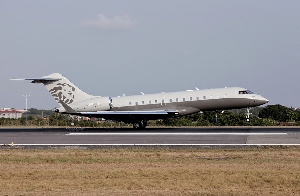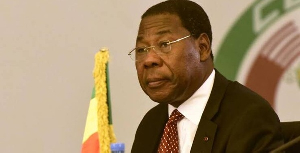GENEVA: The IMF, in its negotiations with Ghana regarding the conditions that will be attached to its next tranche of loans under the so-called Poverty Reduction and Growth Facility (PRGF), appears to continue requiring the implementation of full cost recovery in the public utilities.
A newly released IMF loan document dated 5 March discusses the conditions imposed under the PRGF on the fourth and fifth tranche of Ghana’s loan.
According to the document, as a condition for releasing the next tranche of the loan, the IMF has required Ghana to implement full cost recovery in public utilities, and requires the country’s independent Public Utility Regulatory Commission to develop an automatic tariff adjustment formula for electricity and water.
Full cost recovery, a term used by the World Bank, entails removing public subsidies for water and instituting consumer fees or tariffs that can increase until the full costs of operation and maintenance of the water utility are recovered. This move usually precedes privatization so that the financial standing of the company can be improved prior to its sale.
On the other hand, putting in place an automatic tariff adjustment formula would reflect shifts in the international exchange rate of the cedi, the Ghanaian currency. Multinational corporations usually require this in order to be shielded from the effects of shifts in soft currency exchange rates when they invest in developing countries.
The negotiations between the IMF and Ghana preceded the World Bank and IMF’s announcement end February awarding Ghana debt relief under the Heavily Indebted Poor Countries (HIPC) initiative.
Ghana became the 26th country to qualify for debt relief under the HIPC and is expected to see a 67% reduction in its debt service payments to the World Bank’s International Development Association (IDA) over the next 20 years, and a 49% fall in debt servicing to the IMF over the next 8 years. Ghana currently spends 7.7% of its GDP on debt servicing.
Loan conditions imposed by the IMF and World Bank on Ghana mandated a 95% hike in water fees in May 2001. The new IMF conditions would mean that additional price hikes will be planned.
According to Rudolf Amenga-Etego of Ghana’s National Coalition Against Privatization of Water, “The current water tariff rates that the government of Ghana and the World Bank think are below the market rate, are already beyond the means of most of the population in Ghana.”
“So, how will the population possibly be able to absorb a so-called market price in the context of privatization?” he asks.
The World Bank and IMF policies, for a number of years, have been pushing the government of Ghana to increase consumer fees for water and lease the water system to transnational water corporations.
But opposition to the proposed privatization of the urban water system and the increased water fees has arisen from a broad cross-section of Ghanaian civil society, including students, trade unions, nurses, farmers and women’s groups, many under the banner of the National Coalition Against Privatization of Water.
According to Sara Grusky, US coordinator of the International Water Working Group of Public Citizen, the average price for a bucket of water, which used to be 400 cedis, rose to 800 cedis following the May 2001 price hike. (One US dollar exchanges for 7,000 cedis.)
Currently, says Public Citizen, about 35% of the Ghanaian population lack access to safe water and 68% lack sanitation services. More than 60% of the population earn less than $1 a day and approximately 40% fall below the national poverty line. Ghana has a per capita income of $390, which is lower than other sub-Saharan countries. (SUNS5081)
From TWE No 276 (1-15 March 2002)
General News of Friday, 15 March 2002
Source: Kanaga Raja












